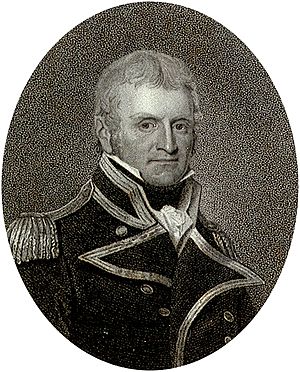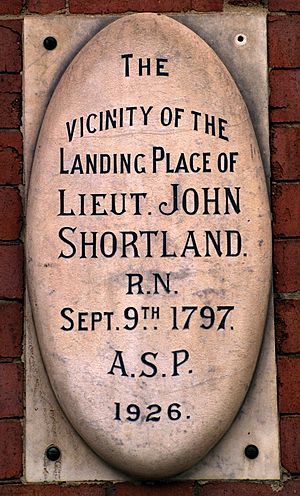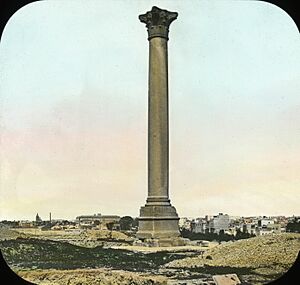John Shortland facts for kids
Quick facts for kids
John Shortland
|
|
|---|---|
 |
|
| Born | 5 September 1769 |
| Died | 21 January 1810 (aged 40) Guadeloupe |
| Allegiance | Kingdom of Great Britain |
| Royal Navy | |
| Rank | Captain |
| Commands held | HMS Junon |
| Relations | John Shortland (father) Willoughby Shortland (nephew) Peter Shortland (nephew) Edward Shortland (nephew) |
John Shortland (born September 5, 1769 – died January 21, 1810) was an important officer in the Royal Navy. He was the oldest son of another famous naval officer, also named John Shortland.
Young John Shortland joined the Royal Navy as a midshipman. He sailed to Quebec on a ship commanded by his father. From 1783 to 1787, he served in the West Indies.
In 1787, he was a master's mate on the ship HMS Sirius. This ship was part of the First Fleet that sailed to Australia. Shortland spent almost five years in Australia. During this time, he was on Norfolk Island when the Sirius ship was wrecked in 1790. He returned to England in 1792.
Contents
Exploring Australia
In 1794, John Shortland returned to Australia. He was the first lieutenant for the new governor, John Hunter.
Discovering the Hunter River
On September 9, 1797, Shortland was looking for runaway convicts near Port Stephens. He found the mouth of a large river, which is now called the Hunter River. The city of Newcastle, New South Wales is located on this river.

During his short visit, Shortland named the river. For some years, people also called it the Coal River. He made the first simple map of the harbor and collected samples of coal. Shortland believed his discovery would be "a great acquisition to the settlement." This meant it would be very useful for the new colony.
Today, a suburb in Newcastle called Shortland is named after him. Also, a federal voting area, the Division of Shortland, carries his name.
Adventures in Egypt
In 1800, a friend named Admiral John Schank helped Shortland get a new job. He was appointed to the troopship Pandour. His job was to manage the soldiers traveling to Egypt.
Climbing Pompey's Pillar
While in Egypt, Shortland did something very daring. He used a kite to get ropes over Pompey's Pillar in Alexandria. This allowed him to set up a rope ladder.

On February 3, 1803, he and John White, the ship's Master, climbed to the top. They proudly displayed the Union Jack flag. They also drank a toast to King George III and cheered loudly. Three days later, they climbed the pillar again. This time, they put up a weather vane and even ate a beef steak! They toasted the king once more.
When Shortland returned from Egypt in 1803, he left the Pandour. A few days later, he was given command of HMS Dolphin, another troopship. In 1805, he moved to the 18-gun sloop HMS Trompeuse.
He sailed the Trompeuse to the coast of Guinea. There, he was promoted to post captain on HMS Squirrel. The Admiralty, which was the Royal Navy's leadership, confirmed his promotion when he returned to England later that year.
Final Battle and Death
On December 13, 1809, Captain Shortland was commanding Junon. His ship fought against two large 48-gun French ships and two smaller 20-gun ships. The French ships were much stronger.
Shortland was very badly wounded in the battle. His ship was so damaged that the French had to burn it. The French took his injured body to a hospital in Guadeloupe. He died there on January 21, 1810. He was buried with full military honors in Basse-Terre, the capital of Guadeloupe.
 | Isaac Myers |
 | D. Hamilton Jackson |
 | A. Philip Randolph |

